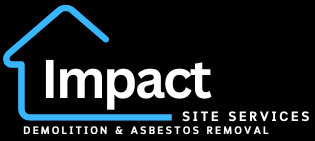What Every Newcastle Renter Should Know About Asbestos
If you’re renting a property in Newcastle—whether it’s a charming older home in Hamilton, a beachside unit in Merewether, or a terrace in Cooks Hill—it’s important to understand the potential risks posed by asbestos. While asbestos might sound like something from a bygone industrial era, it remains a relevant health and safety issue in many Australian rental properties.
This blog is your long-form guide to everything renters in Newcastle should know about asbestos: what it is, where it might be found, the risks, your rights as a tenant, and how to act if you suspect it in your home.
What Is Asbestos?
Asbestos is a group of naturally occurring fibrous minerals known for their durability, fire resistance, and insulating properties. Due to these qualities, asbestos was widely used in building materials across Australia, especially from the 1940s to the late 1980s.
There are three main types of asbestos:
- Chrysotile (white asbestos)
- Amosite (brown asbestos)
- Crocidolite (blue asbestos)
In Australia, the use of all types of asbestos in new construction was banned in 2003, but any buildings constructed or renovated before this date may still contain it.
Asbestos in Newcastle Properties
Newcastle, with its rich industrial history and older housing stock, is one of the Australian cities where asbestos is commonly found in residential properties. Many homes built before the 1990s in suburbs like Mayfield, Waratah, and Islington may still contain asbestos materials.
Common Places Asbestos May Be Found:
- Roofing and guttering
- Eaves and wall cladding
- Ceiling tiles and insulation
- Bathroom linings
- Vinyl floor tiles and adhesives
- Fencing and outbuildings like garages and sheds
- Water or flue pipes
Why Asbestos Is Dangerous
Asbestos becomes dangerous only when it is disturbed, releasing fine fibres into the air that can be inhaled. These fibres are incredibly harmful and can cause serious long-term health issues:
- Asbestosis – scarring of lung tissue
- Mesothelioma – a rare and aggressive form of cancer
- Lung cancer
- Pleural disease – affecting the lining of the lungs
These diseases may take 10–40 years to develop, which makes awareness and prevention critical.
As a Newcastle Renter, What Are Your Rights?
In New South Wales, tenants are protected under the Residential Tenancies Act 2010. Here’s what that means for you:
1. Landlord’s Responsibility
Your landlord must provide and maintain a safe and habitable property. If asbestos is present and poses a health risk, your landlord is legally required to remediate the issue.
2. Disclosure Requirements
While NSW law does not require landlords to proactively inform tenants of asbestos, if they know it’s present, especially in a friable (easily crumbled) form, and it poses a risk, they must take action.
3. Maintenance and Repairs
If maintenance or renovations could disturb suspected asbestos-containing materials, the landlord must engage licensed asbestos professionals. It is illegal to handle or remove friable asbestos without proper licensing.
4. Right to Raise Concerns
You have the right to request an asbestos inspection or raise concerns to the landlord or property manager. This should always be done in writing.
What to Do If You Suspect Asbestos in Your Rental Property
If you suspect your rental property may contain asbestos, follow these steps:
1. Don’t Disturb It
Leave it alone. Asbestos is most dangerous when disturbed. Avoid sanding, drilling, or breaking any materials that may contain asbestos.
2. Notify Your Landlord or Property Manager
Raise the concern in writing. Describe the area and your reason for concern. Ask whether an asbestos inspection has ever been conducted.
3. Request a Professional Inspection
If there’s uncertainty, request that the landlord arrange for a licensed asbestos contractor Newcastle to test and confirm.
4. Contact Fair Trading or NCAT if Necessary
If your landlord refuses to act and you believe there’s a risk to your health, you can contact NSW Fair Trading or escalate the matter to the NSW Civil and Administrative Tribunal (NCAT).
Safe Practices for Renters
While you’re not responsible for asbestos removal, you can help keep your home safe:
- Do not attempt to renovate any areas yourself
- Avoid pressure washing old fences or cladding
- Use caution when hanging pictures or shelves
- Report any damage (e.g. crumbling walls, cracked ceiling tiles)
Newcastle Council and Asbestos Disposal
The City of Newcastle provides resources and guidance for asbestos safety and removal. However, as a renter, you shouldn’t be disposing of asbestos yourself. That responsibility falls to the property owner and licensed contractors.
If you notice illegal dumping or unsafe renovation practices in your neighborhood, you can report it to the NSW Environment Protection Authority (EPA) or Newcastle Council.
Renting a Property with Known Asbestos: Is It Safe?
Yes—if the asbestos is in good condition and undisturbed, it generally poses no immediate health risk. Many homes across Australia, including Newcastle, contain asbestos that has been safely encapsulated or sealed.
However, your safety depends on:
- The condition of the asbestos-containing materials
- The level of maintenance in the home
- How quickly repairs are made when damage occurs
Always err on the side of caution and report any suspicious materials or damage.
Final Thoughts
Renting a home in Newcastle shouldn’t come with health risks—but if your property was built before 1990, asbestos might be part of its construction. The key is knowledge and communication. Know your rights, understand the risks, and never hesitate to raise concerns with your landlord or property manager.
If you’re in doubt, seek advice from:
Being proactive and informed can help ensure that your home remains a safe place to live, now and into the future.

